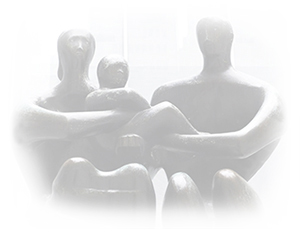About Jungian Analysis and Psychoanalytic Psychotherapy
Jungian Analysis and Psychoanalytic Psychotherapy together offer an holistic approach to understanding our lives and the world in which we live.
A Jungian and post-Jungian approach has a deep respect for the uniqueness of the individual, for the wisdom of the psyche, for the purposive nature of both dreams and symptoms and for the importance of creativity and imagination. I have an ecological approach which recognises that we are relational beings and that we are always situated within a particular social, environmental and cultural context.
I draw on a range of theoretical and clinical influences and work with dreams to assist clients in understanding and working through emotional distress and loss, interpersonal conflicts and confusions, life changes and uncertainties.
A Jungian and post-Jungian approach is applicable to individuals, couples, families and groups because it places the relationship with and understanding of one’s ‘self’ at the centre of understanding one’s relationships with others and relationships between ourselves and the world.
It rests on two assumptions:
- that our unconscious life profoundly affects and interferes with our conscious intent; and
- that the integration of disavowed aspects of self supports the development of the personality towards greater self-fulfilment and engagement with life.
Once acknowledged and related to, our unconscious life can potentially enrich and expand our conscious awareness and become a source of creative renewal and meaning making.
People come into psychotherapy because they feel that their relationship with themselves and others is out of kilter in some way. They may feel anxious and/or depressed, feel a lack of meaningfulness or purpose in life, feel confused about relationships or life path, find themselves in a difficult situation, or perhaps feel stuck or blocked or can’t sleep.
Some people come into therapy because of unsettling or frightening dreams or repeating dream ‘themes’ or because they have had a powerful dream experience which they wish to understand. Others come into therapy because they have a feeling that something is ‘wrong’ or ‘not quite right’ but can’t put their finger on it. Or it might be that there has been a traumatic life event, such as a significant loss or shock that cannot be overcome, or a migration experience.
Many people also seek therapy because they have begun to recognise patterns that repeat, or because they have recognised that their relationship with their body and/or with food is disturbed in some way, or because they have noticed recurring or unexplained physical symptoms, or suffer from chronic physical or mental illness. Many people seek therapy because of anxieties and confusions about ‘who’ they are.
I offer a safe, supportive and confidential environment in which the unconscious patterns that structure our perceptions of self and other and hence our relationships, and the meanings that we make of them, can be discovered and reflected upon.
As the bindings of past experience loosen, this opens the way to greater freedom, more choice and self-change.

‘The goal of psychoanalytic psychotherapy is to loosen the bonds of past experience to create new life possibilities.’
(Jonathan Shedler)

‘The Family’, Henry Moore
